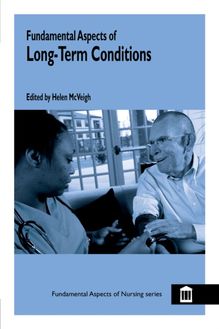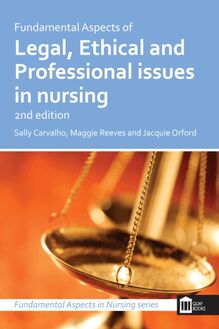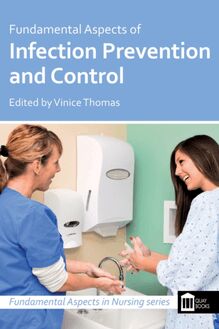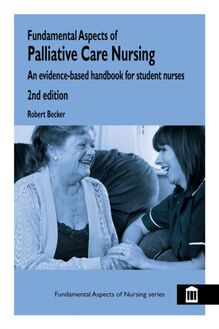-
 Univers
Univers
-
 Ebooks
Ebooks
-
 Livres audio
Livres audio
-
 Presse
Presse
-
 Podcasts
Podcasts
-
 BD
BD
-
 Documents
Documents
-
- Cours
- Révisions
- Ressources pédagogiques
- Sciences de l’éducation
- Manuels scolaires
- Langues
- Travaux de classe
- Annales de BEP
- Etudes supérieures
- Maternelle et primaire
- Fiches de lecture
- Orientation scolaire
- Méthodologie
- Corrigés de devoir
- Annales d’examens et concours
- Annales du bac
- Annales du brevet
- Rapports de stage
La lecture à portée de main
Vous pourrez modifier la taille du texte de cet ouvrage
Découvre YouScribe en t'inscrivant gratuitement
Je m'inscrisDécouvre YouScribe en t'inscrivant gratuitement
Je m'inscrisEn savoir plus
Vous pourrez modifier la taille du texte de cet ouvrage
En savoir plus

Description
Sujets
Informations
| Publié par | Andrews UK |
| Date de parution | 13 juin 2016 |
| Nombre de lectures | 0 |
| EAN13 | 9781856424523 |
| Langue | English |
Informations légales : prix de location à la page 0,1024€. Cette information est donnée uniquement à titre indicatif conformément à la législation en vigueur.
Extrait
Title page
Fundamental Aspects of Palliative Care Nursing
An evidence-based handbook for student nurses
Second edition
Robert Becker
Publisher information
2016 digital version converted and published by
Andrews UK Limited
www.andrewsuk.com
Quay Books Division, MA Healthcare Ltd, St Jude’s Church, Dulwich Road, London SE24 0PB
© MA Healthcare Limited 2010, 2016
All rights reserved. No part of this publication may be reproduced, stored in a retrieval system or transmitted in any form or by any means, electronic, mechanical, photocopying, recording or otherwise, without prior permission from the publishers
Note
Health and social care practice and knowledge are constantly changing and developing as new research and treatments, changes in procedures, drugs and equipment become available.
The authors, editor and publishers have, as far as is possible, taken care to confirm that the information complies with the latest standards of practice and legislation.
Foreword
Wow! What a roller coaster of emotions this book has evoked. I am really pleased to find out that the reactions I had to death and dying are in fact quite normal. The chapter on bereavement also highlighted and finally put a context to one event that I’ll always remember. After my mother died, people I had known all my life seemed to ignore me. I realise now it was because they didn’t know what to say, but at the time it’s the feeling of isolation that takes a long time to fade. There was also the time I offered a hysterical lady a cup of tea while she was running around the Chapel of Rest. After reading the chapter on communication skills I realise that it was not a completely insensitive thing to say. (This was something that happened in my first year as a student and on my very first placement.)
The book is very user friendly; the text is academic, but written in uncomplicated English, which I found very helpful as I have a form of dyslexia which makes reading difficult at times. It gives an excellent insight into palliative care, and the self- assessment tests are an absolute must so that you can test your understanding of a topic. The three parts help a lot by grouping things together and the chapter headings make it easy to find areas of interest.
For me the book is an excellent survival guide for nursing students with regard to the difficult area of palliative care. Every student knows that death and dying are things that we encounter throughout our three years of training and I really wish I had had this book at the beginning of my training to help guide me through. I will definitely be recommending it to other students and I hope it makes it onto university reading lists.
Deanna Tompkins
Nursing Student, Staffordshire University
As a student nurse entering my final year of study I was honoured to be asked to write this foreword. It is imperative in my view that end of life care is done compassionately and correctly. It is something that we as student nurses do not look forward to confronting, but will inevitably do so many times during our training and nursing career. It is something we want to do well and something we are petrified of getting wrong. This book guides, advises and supports us through these very difficult times and teaches us ways in which we can do all the right things, answer the difficult questions and provide the best possible care for every dying person we encounter. The book also expresses perfectly the importance of this through the medium of the short story to paint a picture at the beginning of each chapter from the perspective of the person who is dying.
The user-friendly style of this handbook enabled me to navigate easily towards any specific area of palliative care I required. The overall format and content not only create a clear guide for student nurses, but also include sections which enhance self-learning, including the ‘Reflective activity’ and ‘Self-assessment test’ segments in each chapter. I found the use of different symbols throughout the book very handy to easily locate these exercises.
The reflective activities helped me to build confidence in my clinical practice, by asking me what I would do in certain scenarios. This helped me to visualise situations and to think carefully about how I would handle them. I also found that this was a trigger for reflection on my personal experiences in the clinical placements I have attended to date. I will definitely feel more at ease and in control when confronting similar situations in the future and I will certainly utilise this informative and useful handbook throughout the remainder of my training and take it with me into my nursing career. A great book.
Abigail White
Nursing Student, Staffordshire University
Preface
It is now five years since the first edition of this book was published and whilst the core skills and behaviours required to care for the dying in multiple environments have remained constant, the knowledge base to support this care has developed and changed in some important areas. It is appropriate therefore that this second edition takes a fresh look at the new evidence- and practice-based experience that has become available to inform care in this dynamic area.
The primary focus of the book is now on student nurses, who have many competing demands during their education, but are consistently exposed to palliative care scenarios throughout their three-year training and find such care emotionally exhausting and academically challenging. I also know that they care very much about getting it right, and whilst there are numerous high-quality books on the market that are available to support academic study in this area, this book is currently the only one specifically designed for their learning needs in everyday clinical practice.
Rather than providing a detailed meta-analysis of theoretical and research-based concepts, the emphasis in the text is on dealing with practice-based situations in a sensitive and informed way. This second edition is therefore designed to be a compact, learning-oriented, evidence-based handbook which offers comprehensive, practice guidelines across the spectrum of palliative/end of life care scenarios to provide a trigger and opportunity for reflection and learning.
I have taken the opportunity to redesign the layout of the chapters to make them more structured and user friendly by the use of symbols to help the reader easily locate the relevant information they need. I have also included some educationally important elements, such as learning outcomes at the outset of each chapter to guide the reader, reflective points and activities to help with professional development, and self-assessment multiple choice tests at the conclusion of each chapter to consolidate learning. There is even a true or false quiz offered for those who would like to test their knowledge before or after their studies. The short clinical anecdotes at the outset of each chapter which served well to set the scene in the first edition have been retained and changed only where necessary.
I have also added several new chapters to help readers make sense of the range of new initiatives that have come to the fore in palliative care in the last five years. Even the language has changed and we now hear the term ‘end of life care’ used in many contexts where ‘palliative’ was used before. Essentially they are one and the same, but government strategy and policy documents have introduced this phrase for a good reason. The term ‘palliative’, whilst generic in its meaning and intent, has nevertheless become synonymous with hospices, specialisation and above all cancer. There is a real need to find a term that is clearly understood by the general public and embraces caring for the dying of whatever diagnosis in whatever environment. ‘End of life care’ does just that and signals an intent to meet everyone’s needs.
Overall, the integrity of the text remains fundamentally the same. It was the intention with the first edition to produce a book that was very much an evidence-based ‘how to do it’ text, and feedback from many sources (including the formal reviews), confirmed that this was a successful and much appreciated approach. It is with this in mind that the focus was moved towards student nurses and their learning needs. Post-registration learning opportunities in palliative care abound in the UK for qualified nurses, with a proliferation of study courses available in both the higher education sector and local hospices. Some are tied to academic pathways, while others offer a more flexible online or distance learning approach. Each has its merits and the growth of such educational opportunity has undoubtedly contributed greatly to the high degree of skills employed by nurses in many sectors of healthcare where end of life issues are of importance.
Pre-registration nursing curricula are constantly developing alongside service developments to reflect the need for nurses to be well prepared for the demands of clinical practice in many environments. The learning needs in a palliative context of the next generation of nurses have, however, been systematically ignored by successive statutory bodies. There remains to this day no formal imperative to include any specific end of life care content in the pre-registration nursing curricula on any part of the nursing register. Consequently, provision ranges from the fully integrated and structured module through to the odd lecture given by a local clinical nurse specialist if they can spare the time and have the skills. This is simply not good enough. As any competent educator will confirm, if you can inform, inspire and shape attitudes, skills and behaviours at the outset of a career, then nurses will carry this le
-
 Univers
Univers
-
 Ebooks
Ebooks
-
 Livres audio
Livres audio
-
 Presse
Presse
-
 Podcasts
Podcasts
-
 BD
BD
-
 Documents
Documents
-
Jeunesse
-
Littérature
-
Ressources professionnelles
-
Santé et bien-être
-
Savoirs
-
Education
-
Loisirs et hobbies
-
Art, musique et cinéma
-
Actualité et débat de société
-
Jeunesse
-
Littérature
-
Ressources professionnelles
-
Santé et bien-être
-
Savoirs
-
Education
-
Loisirs et hobbies
-
Art, musique et cinéma
-
Actualité et débat de société
-
Actualités
-
Lifestyle
-
Presse jeunesse
-
Presse professionnelle
-
Pratique
-
Presse sportive
-
Presse internationale
-
Culture & Médias
-
Action et Aventures
-
Science-fiction et Fantasy
-
Société
-
Jeunesse
-
Littérature
-
Ressources professionnelles
-
Santé et bien-être
-
Savoirs
-
Education
-
Loisirs et hobbies
-
Art, musique et cinéma
-
Actualité et débat de société
- Cours
- Révisions
- Ressources pédagogiques
- Sciences de l’éducation
- Manuels scolaires
- Langues
- Travaux de classe
- Annales de BEP
- Etudes supérieures
- Maternelle et primaire
- Fiches de lecture
- Orientation scolaire
- Méthodologie
- Corrigés de devoir
- Annales d’examens et concours
- Annales du bac
- Annales du brevet
- Rapports de stage









